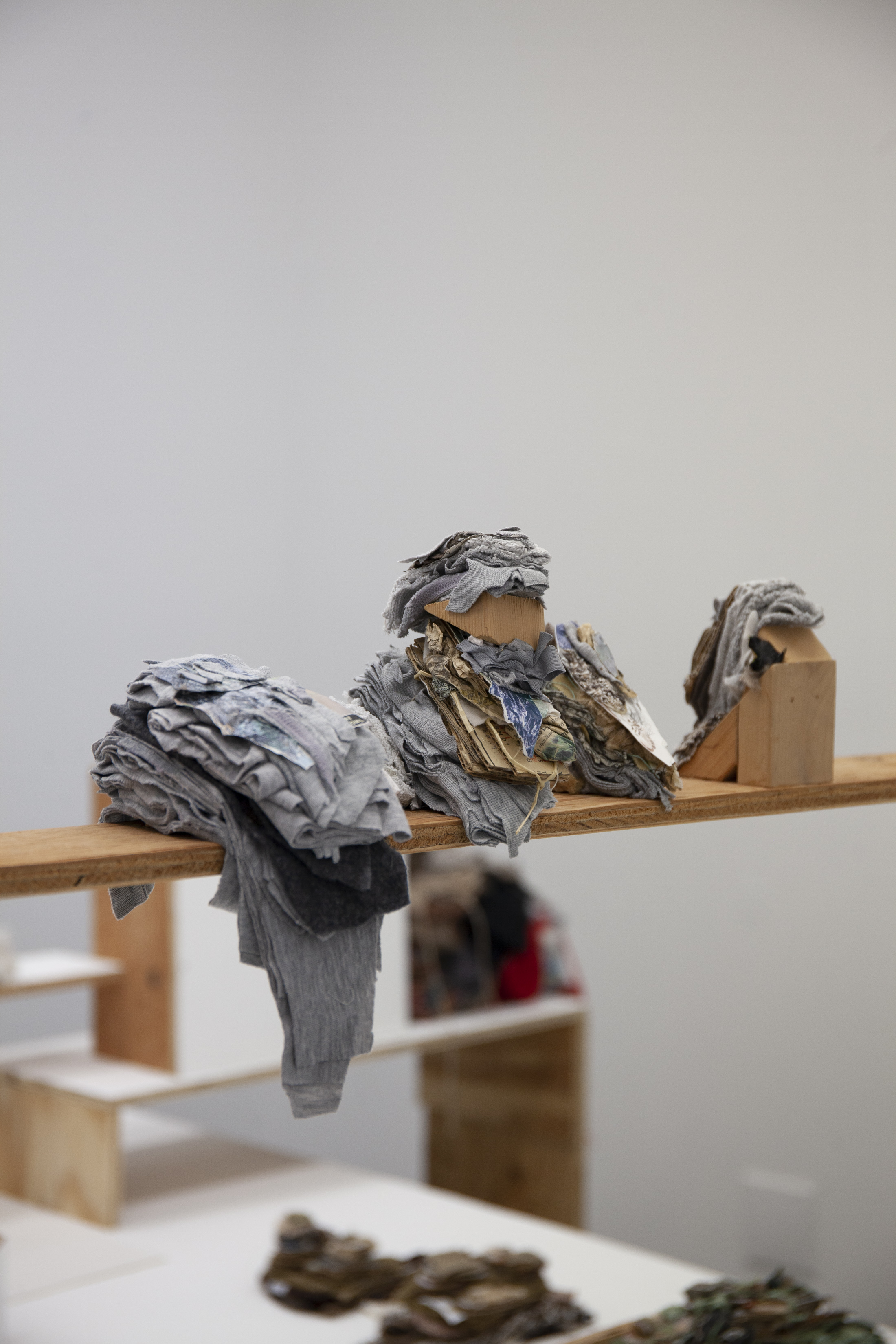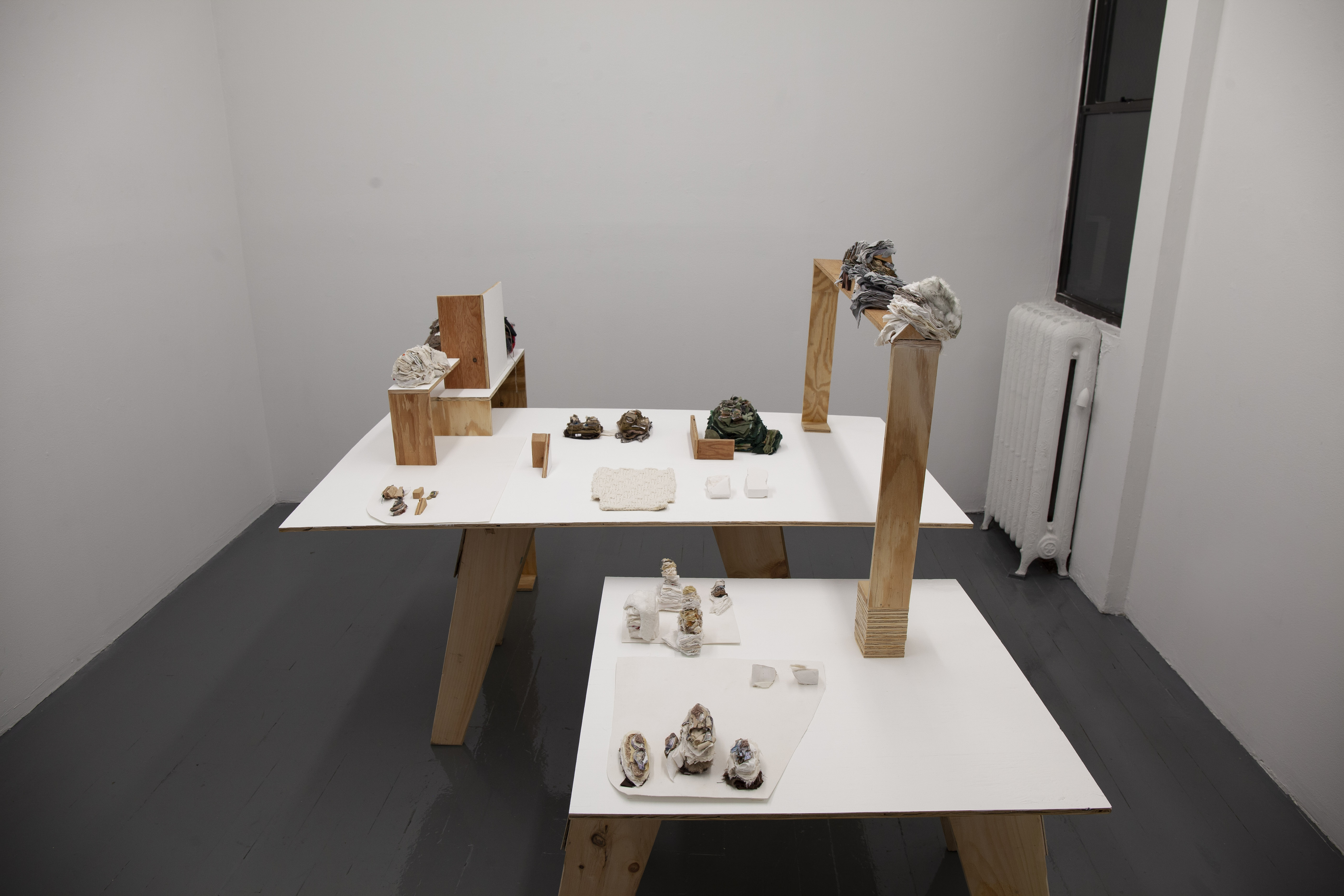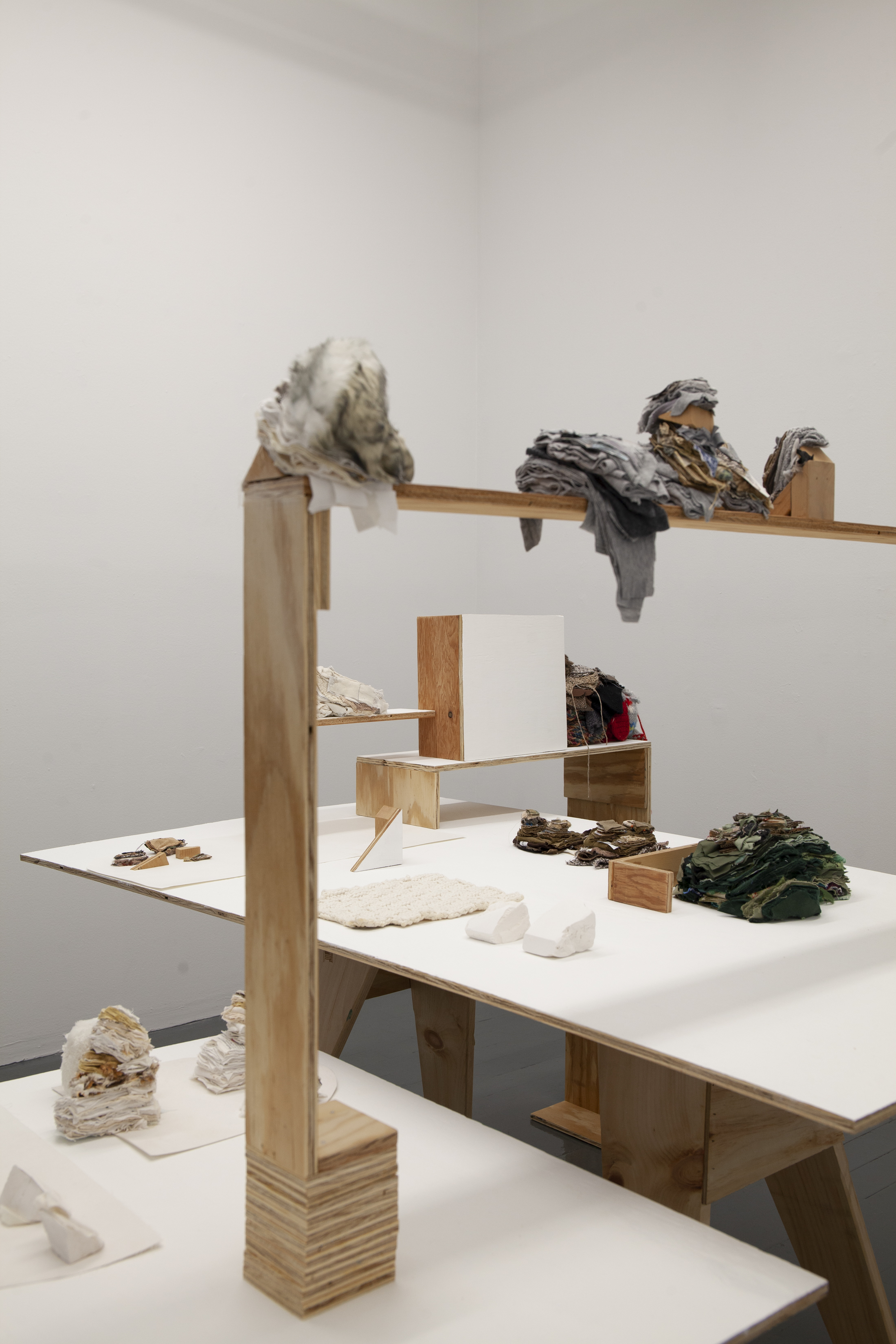Kathryn Spence
September 9 - October 22, 2022
Press:
Artforum Must See
CAD
Kathryn Spence has spent years compiling, sorting and transforming culture’s discards into sculptural objects that reveal a human determination on the topic of sufficiency.
Specific to nature is the opportunity for the circumstantial to resist categorization of clean or dirty, worthy or unworthy, denying commands that signify human-based values. Fascinated with space, materiality, and objectness, Spence attends to materials conventionally wasted to produce installations and individual objects that act as a point of unhinging between the natural world and the controlled world.
Assuming form as piles or "drawings,” materials like cast-off fabric from clothing alterations, found unfinished knitting and crochet projects, fur from stuffed animals, cardboard and paper are organized in a way that allow for new analogies to arise from matter considered to be at the end of its life. This consideration stems from Spence's experience as a birder and living in cities, noting the dominance of the controlled world and her concern about the demise of the natural world. Each sculpture was generated from meditating on or pondering a particular owl species. Spence feels a certain intimacy with them having observed most of them in the wild, and worries often about human encroachment and development making nature increasingly vulnerable. A kind of drawing in space occurs while stacking and reorganizing, utilizing textures, rhythm and gravity and is finally situated on the table, the space between as important as the pieces themselves. A particular species of owl may remain in plain sight within each object and is revealed through examination. This process encourages time spent looking while slowly unveiling a dislocation between the natural and the artifice of culture and consumerism.
A determining factor in Spence's practice is her resistance to bringing more objects into the world. The materials sourced for her sculptures are miscellaneous scraps that are universally considered surplus and deemed valueless. Provided this logic, the comparison of the natural world is most opportune: what is freely given risks the assumption of being understood as unending and without value. Or conversely, allows for the sheer observance of how deep a role consumerism plays in our lives.
Spence has been creating sculpture in this manner since the 1990s using materials such as mud, trash collected from the street, stuffed animals, and discarded textiles to make presentations that invite the viewer to consider elements apart from their initial use. Often placed on a simple wood table integrated into or separated by shelves, flat swaths of unearthed and preserved material or random chosen objects are included to “inform” the “official” objects. The sculptures take form as individual, together in a set, or seated in groupings. The organizational method of these non-precious materials pursue the beginning of a new application once again, an abstract object that aligns with both its past life and new point of reference in the world.
Kathryn Spence (b. 1963) lives and works in the Bay Area and is featured in numerous public collections including SFMOMA, the M.H. de Young Memorial Museum, BAMPFA, the Oakland Museum of California, the Nelson Museum at U.C. Davis, Mills College Art Museum, the Denver Art Museum, the Birmingham Art Museum, the San Jose Museum of Art, and the Santa Barbara Museum of Art. Spence is a recipient of the Anonymous was a Woman award, the Eureka Fellowship, an Artadia award, and the Fleischhacker Foundation award.
Spence’s “Pigeons” were recently on view at SFMOMA in ‘Greater Than the Sum,’ 2021-22. Solo exhibitions include the Aldrich Museum of Contemporary Art, 2012, Mills College Art Museum, Oakland, CA, 2010, the Johnson Museum at Cornell University, Ithaca, 2001, and the Kemper Museum of Contemporary Art, Kansas City, 1999. Groups exhibitions include the Denver Art Museum, the San Jose Museum of Art, the 2005 Corcoran Biennial, Washington D.C., the California Biennial at the Orange County Museum, Israel Museum, Jerusalem, SFMOMA’s ‘Present Tense', Mass College of Art, Boston, Torch Gallery, Amsterdam, the first ‘Bay Area Now’ at Yerba Buena Center for the Arts, S.F., and the Oakland Museum of California. Kathryn showed for 18 years at Stephen Wirtz in San Francisco, and currently has a solo show at P.Bibeau in New York City.
Images by Peter Sit





















